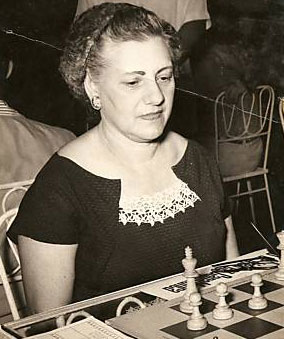You’ve probably heard of “The Queen’s Gambit,” Netflix’s hit coming-of-age miniseries about a fictional American chess prodigy, set in the mid 1950s. But have you heard of Maria Teresa Mora Iturralde? She’s the real life child prodigy who started winning chess tournaments in the 1920s.
“The Cuban ‘Maria Teresa Mora Iturralde’ was a woman who ‘destroyed’ all of her male competitors during the Cuban National Championship in 1922, but she was never allowed to compete with men worldwide during those years,” Spanish YouTuber Joaquin Lourido explains.
Some say, had she been given the chance, she could have defeated Bobby Fischer. Yet few people know about Chess Master María Teresa Mora Iturralde. It's time to tell the story of an amazing chess player.
A Chess Star is Born
María Teresa Mora Iturralde was born in Havana, Cuba on October 15, 1902. She was introduced to chess by her father and competed in her first tournament at the Havana Chess Club in 1913, placing first.
“One of the things I noticed in her games is that she has an exquisite positional style and a great sense for the endgame,” Romanian Chess Player and FIDE Trainer Silvia-Raluca Sgîrcea recently said.
World Chess Champion José Raúl Capablanca, widely known as one of the greatest players in history, was so impressed with Iturralde that he offered to teach her personally. She became the only person to receive chess lessons from Capablanca.
RELATED POST: This Cuban Genius Was Called the ‘Mozart of Chess’
"There was in Habana a young girl of from twelve to fourteen years of age who interested me a great deal. Not only was she intelligent and modest in every respect, but what is more to the point, she played chess quite well (I believe that to-day she probably is the strongest lady player in the world, though only fifteen or seventeen years old). I offered to give her a few lessons before I sailed. My offer was accepted, " he wrote of her in his memoir, My Chess Career, published in 1920.
‘Maria Teresa would have defeated Bobby Fischer’
In 1922, María would win the National Cuban Championship – where she likely competed exclusively against male competitors. In 1938, María won the Cuban Women's National Championship. She would win that title for a consecutive 22 years until she decided to retire from chess in the 60's. She was never defeated.
“Perhaps, in a perfect world, María Teresa would have defeated Bobby Fischer and the Russian world champions, if she had had the opportunity, let's consider that she was also the only woman who beat José Raúl Capablanca, one of the best in the world, and founder of modern chess,” Lourido says in a YouTube video dedicated to the late chess prodigy.
María died on October 3, 1980 in Havana.
The Struggle for Recognition in Chess
If you're not familiar with the chess world, it's hard to understand just how rare and underappreciated women are in the intellectual sport. As of 2021, the STEM workforce was 35% female. By contrast, out of all chess players registered to play competitively in the United States as of 2020, only 14 percent were female. And they face gender bias from all angles, including their parents and coaches, one study found.
If that's still happening today, imagine the gender discrimination María faced in the early 20th century.
If María Teresa Mora Iturralde could break barriers over a century ago, what’s stopping the next generation of women and Latinos from dominating the chess world today?





